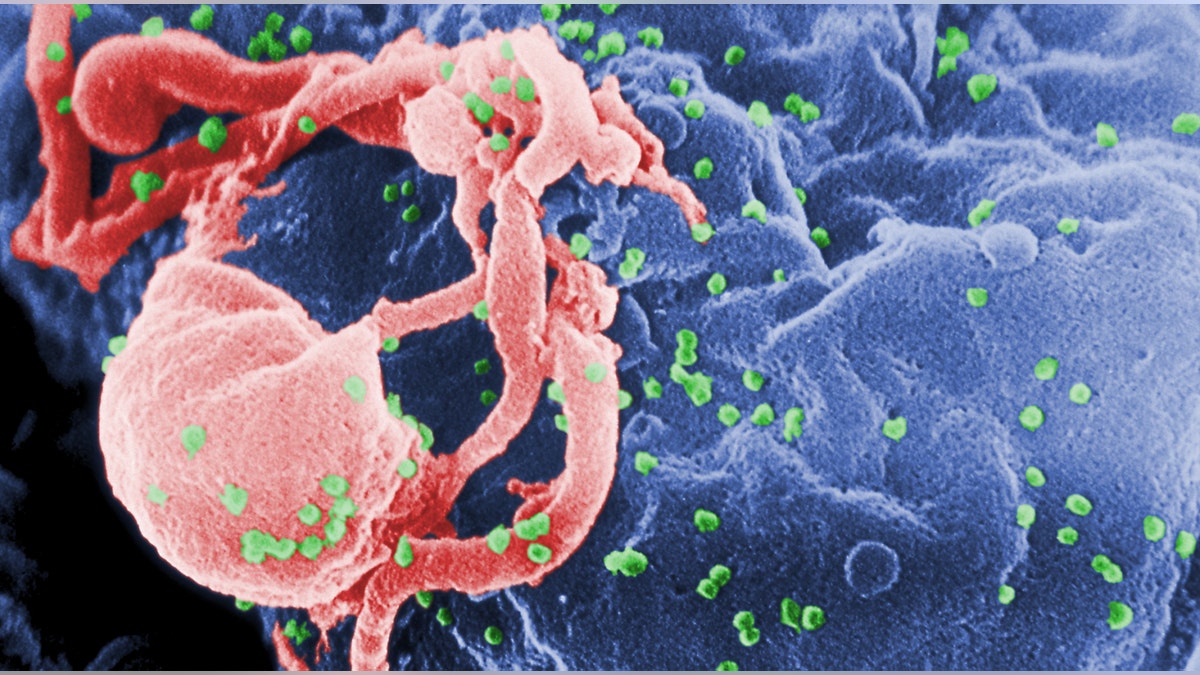
Scanning electron micrograph of HIV-1 budding from cultured lymphocyte. The multiple round bumps on cell surface represent sites of assembly and budding of virions. (CDC.gov)
The U.N. AIDS agency sounded the alarm on Tuesday saying a long-term decline in the number of new HIV infections in adults had stalled and action was needed to prevent a rebound in the global epidemic.
An estimated 1.9 million adults had become infected with HIV every year for at least the past five years. Globally, some 36.7 million were now infected, the United Nations AIDS agency (UNAIDS) said in a report.
New HIV infections among adults, defined as over 15 years old, were now rising in Eastern Europe, central Asia, the Caribbean and Middle East and North Africa, the report said.
"We are sounding the alarm," said Michel Sidibe, executive director of UNAIDS.
"We have a 5-year window of opportunity. If we miss this, we will have a rebound in this epidemic, we'll have resistance and we will not be able to control the epidemic and make sure that we end it by 2030," he told a news conference in Geneva.
The epidemic of the Human Immunodeficiency Virus (HIV) that causes AIDS has had a devastating impact since it began some 35 years ago. Since then, 35 million people have died from AIDS-related illnesses and an estimated 78 million have become infected with HIV.
Young women aged 15-24 years are at particularly high risk of HIV infection, accounting for 20 percent of new infections among adults globally last year, the report said.
"HIV prevention is not working for young women in sub-Saharan Africa. They need more options," Sidibe said.
In Eastern Europe and central Asia, which registered a 57 percent increase in annual new HIV infections over the last five years, about half of new infections are among people who inject drugs.
Russia and Ukraine account for 9 of 10 new infections in the two regions, Sidibe said, adding the epidemic was moving slowly from at-risk groups to the general population.
The World Health Organization says all people diagnosed with HIV should have immediate access to antiretroviral AIDS drugs, which hold the virus in check and give patients a good chance of a long and relatively healthy life.
But the UNAIDS report found only around 17 million patients worldwide - less than half of those diagnosed as HIV positive - are on treatment.
The UNAIDS report said significant progress had been made in stopping new HIV infections among children, with new cases down by more than 70 percent since 2001.
But the decline in new infections among adults had stalled, at a time when donor funding for the fight against AIDS had dropped to its lowest level since 2010, it said.
International donor contributions fell from a peak of $9.7 billion in 2013 to $8.1 billion in 2015.
